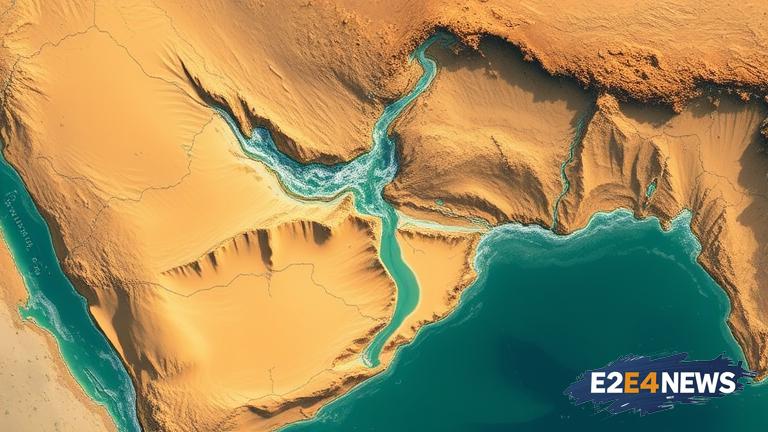The Indus River Delta, once a thriving and diverse ecosystem, is facing an unprecedented crisis as water levels continue to plummet. The delta, which is home to a wide range of flora and fauna, is experiencing a severe decline in water flow, resulting in the loss of habitats and the displacement of communities. The main cause of this decline is the construction of dams and barrages upstream, which has disrupted the natural flow of the river. As a result, the delta is sinking and shrinking at an alarming rate, with severe consequences for the environment, economy, and human populations. The reduction in water flow has also led to an increase in sea intrusion, causing saltwater to encroach upon agricultural land and freshwater sources. This has resulted in the loss of crops, livestock, and livelihoods, leaving millions of people without a source of income. The situation is further exacerbated by climate change, which is causing more frequent and severe droughts and floods. The Pakistani government has been criticized for its lack of action in addressing the issue, with many arguing that more needs to be done to protect the delta and its inhabitants. The Indus River Delta is not only an important ecosystem, but it is also a vital part of Pakistan’s economy, with the fishing industry being a major contributor to the country’s GDP. The decline of the delta will have far-reaching consequences, including the loss of biodiversity, decreased food security, and increased poverty. The international community has been called upon to provide assistance and support to Pakistan in its efforts to protect the delta. The United Nations has warned that the situation is critical and requires immediate attention. The World Bank has also pledged to provide financial assistance to Pakistan to help address the issue. Despite these efforts, the situation remains dire, and it is unclear whether the delta can be saved. The people of Pakistan are calling for urgent action to be taken to protect the delta and its inhabitants. The government has announced plans to build a new dam, which it claims will help to restore the natural flow of the river. However, many experts are skeptical, arguing that the dam will only exacerbate the problem. The situation is complex, and there are no easy solutions. However, it is clear that something needs to be done to protect the Indus River Delta and its inhabitants. The clock is ticking, and if action is not taken soon, the consequences will be catastrophic. The people of Pakistan are waiting with bated breath to see what the future holds for the delta. The international community is also watching with interest, as the fate of the delta has implications for the entire region. The Indus River Delta is a test case for the world, and it remains to be seen whether we can come together to protect this vital ecosystem. The future of the delta is uncertain, but one thing is clear: something needs to be done, and it needs to be done now. The Indus River Delta is a precious resource, and it is our responsibility to protect it. We owe it to ourselves, our children, and future generations to take action to preserve this incredible ecosystem. The time for talk is over; it is time for action. The fate of the Indus River Delta hangs in the balance, and it is up to us to decide its future.





